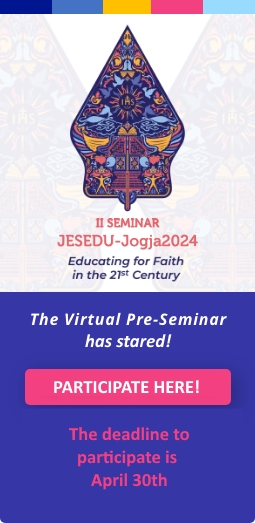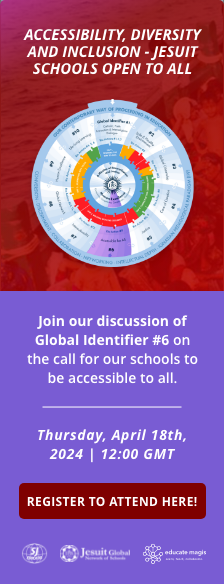During these unprecedented times presented to us by the global pandemic the third UAP, “To Accompany the Youth in the Creation of a Hope Filled Future”, has become even more important than before. Many schools are doing amazing work to accompany their students through these strange times. With the aim to echo and share some of the wonderful ways in which schools in the different Jesuit Provinces have been accompanying students over the last few months we invited Education Delegates from around the world to share some insights from their Provinces. In this article Jennie Hickey, Education Delegate for the Australian Province in the JCAP network, shares some of the work schools did to accompany their youth over the past few months.
What is your general opinion on UAP #3 now that our education system has been forced to adapt to a “new normal”?
It would seem that this has become even more apparent as a result of the Covid pandemic on a number of levels with youth. Building resilience and engaging the imagination to look beyond what they cannot see to a hope-filled future needs to be given great attention.
Could you share some examples of how schools in your Province have been accompanying and caring for students? What steps have you and your Schools taken?
Schools have become even more attuned to the needs of their students as times have impacted their ways of interacting with others, engaging in liturgies and other religious rituals, retreats and camps etc, outreach experiences and classroom learnings. Schools have shown agility, been creative and quickly responsive to changed circumstances.
In the area of classroom practice: timetables and learning outcomes have been amended to accommodate different ages and their attention span to online learning.
educational activities have been created to encourage more group interaction online because the online culture is counter to reflective education – many more reflective activities have been developed Cura Personalis of students has been given a priority. Check-ins with pastoral leaders has been prioritized in some of our schools.
The national student Wellbeing Professional Learning Group have been very active in sharing ideas and activities across the schools Liturgies: online liturgical/prayer experiences have been developed for students.
Outreach activities have been created to accommodate these circumstances. Activities such as writing letters to or interacting online with the elderly in nursing homes; becoming more involved with helping ‘at home’
What would you say the main challenges of this UAP have been and still are, for the schools in your region?
Providing relevant experiences for students to help them find meaning in their lives and give them an authentic experience of God.
What would your advice be to other schools/provinces to consider, while using this UAP as a lens for their work? I.e., how can we better accompany our students or why do you feel this is so important?
I would expect that we could learn more from others rather than give advice. However, in our context – a western world, privileged context, it is important for us to find ways to broaden the world view of our students. The inward focus and reliance on the acquisition of material possessions for happiness must be challenged. Hearing the voice of the student and walking with them as they navigate their world is important, if we want to develop comment young men and women, hope-filled and equipped with the skills to navigate an unpredictable world.

